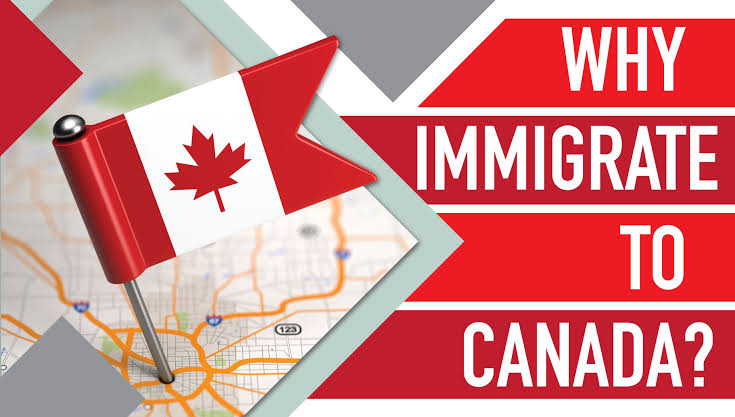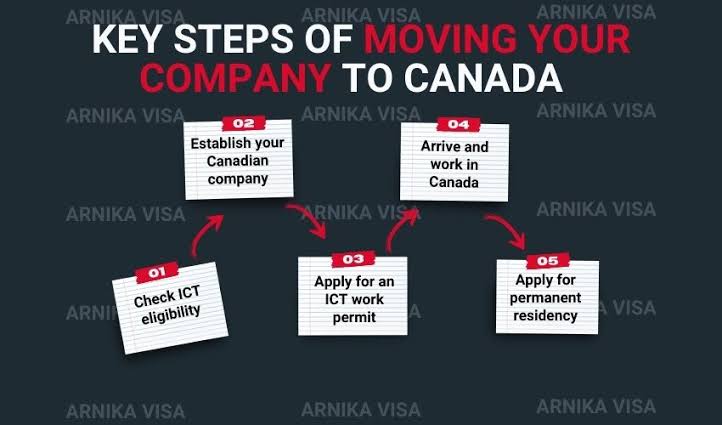Canada is globally recognized for its high academic standards and top-tier educational institutions. International students who choose to immigrate to Canada benefit from a robust, inclusive, and innovative education system that is ranked among the best in the world. Universities like the University of Toronto, McGill University, and the University of British Columbia consistently feature in global rankings and offer diverse programs that align with current global and industry trends.
Access to World-Class Education
The quality of education extends beyond universities. Canada’s colleges and polytechnic institutions provide career-oriented programs with hands-on learning that often lead directly to job opportunities. In 2025, Canadian institutions have further modernized their programs to include emerging fields such as artificial intelligence, green technologies, and advanced healthcare systems. This gives students not only theoretical knowledge but also practical skills that are directly applicable in the Canadian job market.
Studying in Canada also introduces students to cutting-edge research opportunities and access to scholarships, mentorship programs, and innovation hubs. These resources are especially important for international students looking to make a mark in their chosen fields while building connections in Canada’s academic and professional landscapes.
Easier Pathway to Permanent Residency
One of the most significant benefits of immigrating to Canada as a student is the streamlined path it creates toward permanent residency. Canada’s immigration system is structured to favor those who have Canadian education credentials, local work experience, and language proficiency—factors that are naturally acquired through studying in the country.
Upon completing a program at an eligible institution, international students are usually eligible for a Post-Graduation Work Permit (PGWP), which allows them to work in Canada for up to three years. This opportunity not only helps them gain professional experience but also significantly enhances their Comprehensive Ranking System (CRS) score under the Express Entry system, making it easier to qualify for permanent residency.
In addition, several Provincial Nominee Programs (PNPs) have dedicated streams for international graduates, some of which do not require a job offer. These pathways reflect Canada’s strategic intent to retain educated and skilled individuals who have already demonstrated adaptability and commitment to life in the country.
The ease with which education translates into long-term settlement makes Canada especially appealing for students aiming to build a future there.
Diverse and Inclusive Environment
Canada is known for its multiculturalism, and its educational institutions are no exception. Students from all over the world study in Canada, creating diverse, inclusive, and globally-minded academic environments. This diversity enhances the learning experience by exposing students to a range of cultures, perspectives, and ideas.
International students often find communities that make the transition easier—whether through cultural student groups, orientation programs, or settlement services. Most institutions offer international student offices that assist with everything from academic planning to visa issues, housing, and healthcare navigation.
In 2025, Canadian universities have strengthened their equity and inclusion frameworks, ensuring students of all backgrounds are supported and empowered. There’s a strong emphasis on mental health services, anti-discrimination policies, and mentorship programs designed to help international students feel at home.
This sense of belonging contributes to overall academic success and well-being, making it easier for students to focus on their studies and long-term goals.
Affordable and High-Quality Living
Compared to other popular destinations like the United States, the United Kingdom, or Australia, Canada offers relatively affordable tuition rates and living costs. Although tuition for international students can vary by program and province, many students find that their investment goes further in Canada due to the country’s high quality of life and extensive public services.
Healthcare, public transport, and student housing are reasonably priced, especially in cities outside major urban centers like Toronto or Vancouver. Many provinces also offer subsidized health insurance plans for international students, ensuring they have access to essential medical services without heavy financial burden.
Students can also work part-time (up to 20 hours per week) during the academic year and full-time during scheduled breaks, which helps cover living expenses. As of 2025, Canada continues to permit international students to work off-campus without needing a separate work permit, making it easier to gain work experience while supporting themselves financially.
The combination of affordability, safety, and modern infrastructure makes Canada an attractive destination not only for education but also for long-term settlement.
Opportunity for Family Members
Immigrating to Canada as a student doesn’t have to be a solo journey. The Canadian student visa system allows international students to bring their immediate family members with them. Spouses or common-law partners are eligible for an open work permit, enabling them to work full-time while the student completes their education. Dependent children can attend public schools free of charge, giving the entire family access to the Canadian education system.
This arrangement creates a unique benefit for students who don’t want to be separated from their loved ones. It also contributes to a smoother transition to life in Canada and can reduce emotional stress during the study period. In many cases, once the student becomes eligible for permanent residency, family members can also apply to become permanent residents through the same application.
In 2025, IRCC has improved processing times and introduced clearer documentation guidelines to help student families settle more quickly and with fewer complications.
Employment and Career Growth After Graduation
Graduating from a Canadian institution opens up a wealth of employment opportunities. Employers in Canada often view Canadian-educated candidates as more job-ready due to their familiarity with local professional standards, workplace culture, and communication skills.
The PGWP allows graduates to gain valuable Canadian work experience, which is not only a requirement for permanent residency under programs like Canadian Experience Class but also a strong boost to future employability. Many employers use co-op programs, internships, and campus recruitment to connect with international students even before they graduate.
In 2025, Canada is experiencing a labor shortage in various sectors including tech, healthcare, skilled trades, and renewable energy. Graduates with the right skills are in high demand and can command competitive salaries and job offers across multiple provinces.
These employment opportunities translate into financial independence, professional growth, and deeper integration into Canadian society—all crucial for a successful long-term immigration journey.
Conclusion
Immigrating to Canada as a student offers far more than academic enrichment—it serves as a gateway to a secure, fulfilling, and prosperous future. From access to world-class education and supportive policies to clear pathways for permanent residency and family inclusion, Canada provides one of the most comprehensive and welcoming systems for student immigrants.
In 2025, with an evolving global job market and increasing international mobility, Canada’s student immigration pathway stands out as one of the most effective ways to build a lasting and successful life in one of the world’s most respected nations. For ambitious learners with dreams of settling abroad, few opportunities are as rewarding, balanced, and inclusive as studying in Canada.



